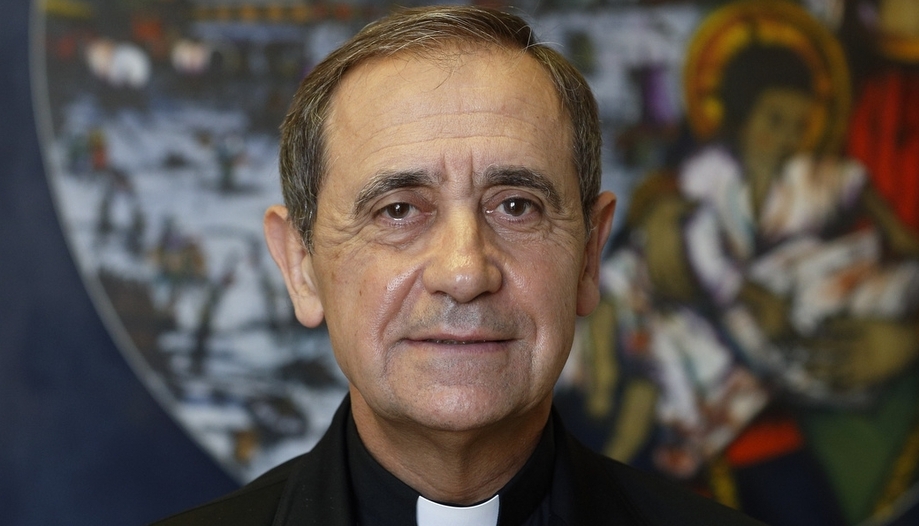With the Apostolic Constitution Sacrae Disciplinae Leges of January 25, 1983, St. John Paul II gave the green light to the promulgation of the new Code of Canon Law (CIC). This norm, enriched and updated on various points, is the one that currently governs the Catholic Church. On the occasion of this anniversary, the Alma Mater Studiorum University of Bologna hosted a congress to reflect on the meaning and implications of this legislation.
Cardinal Matteo Maria Zuppi (Archbishop of Bologna and President of the Italian Episcopal Conference), Dominique Mamberti (Prefect of the Supreme Tribunal of the Apostolic Signatura) and Pietro Parolin (Secretary of State of His Holiness Pope Francis) were among the personalities who participated in this meeting whose conclusions were entrusted to Monsignor Juan Ignacio ArrietaThe Secretary of the Dicastery for Legislative Texts, whom Omnes was able to interview on this occasion.
A In the course of these 40 years, what signs has the code shown and what witness has it proposed in its role of disciplining the life of the Church?
-The Catholic Church presents herself to the world as a society organized within a theological reality, but she operates in history and cannot do without a juridical order. A very peculiar order, precisely because it is called to be coherent with the theological dimension of the Church.
Unlike state law, Canon Law presents the characteristic of universality, having to unify diverse cultures and sensibilities.
This is the meaning of the Code of Canon Law: both the first, that of 1917-18, adopted in order to overcome the old system, which was very articulated and difficult to apply; and the second, conceived after the Second Vatican Council and promulgated in 1983. The latter code is really based on a profound ecclesiological reflection to ensure substantial stability and a general framework for what Pope John Paul II described as the translation in juridical terms of the doctrine of Vatican II. With the possibility for the bishops to apply the provisions contained in the Code according to their culture, in a perspective of decentralization within the framework of the unity proper to the Catholic Church.
The Code has undergone quite a few changes. Can you mention the most significant ones?
-In the forty years since the promulgation of the Code, the evolution of the canonical order has continued in line with the magisterium and advances in doctrine. In the first place, the modifications have affected norms not fully treated in the Code, such as the Roman Curia and other sources of law, including Concordats and agreements with States and international organizations.
Moreover, unlike that of 1917, the 1983 Code had to take into account, as has been pointed out, due to the doctrinal necessity of the episcopate of the last Council, the role of the particular legislators, beginning with the diocesan bishops and the Episcopal Conferences.
The amendments to some parts of the Code, especially in the area of the marriage annulment process and in the criminal law (book VI)The new system, put to the test by the scandal of clergy sexual abuse of minors, has recently undergone a complete overhaul.
According to Cardinal Zuppi, "the normative apparatus promulgated in 1983, inspired by the teachings of the Second Vatican Council, is adequate for contemporary ecclesial society". Do you agree?
-In general, the reforms implemented have demonstrated the integrity of the original framework, i.e., necessary modifications and updates can be introduced without damage to the Code as a whole. Precisely because it is closely based on conciliar doctrine, the 1983 Code retains its validity and still responds today to the needs of the Church's mission.
Following the experience of the CIC, one cannot but look to the future, with the Church's commitment to address new challenges with consideration and determination. What role should Canon Law play in the Church's synodal journey?
-Some reform proposals have been discussed for a long time in the doctrine, without taking into account the broad impact that a wider reception of the principle of synodality and the greater participation of all the faithful in the institutes already foreseen by the Council and included in the Code could have on ecclesiastical institutions.
On the one hand, it may be necessary to make an adjustment in real estate regulations, in the name of the need to pay greater attention to what is happening in the contemporary world.
From this point of view, a greater professionalization of the subjects working in these areas is desirable, with a more prominent role for the laity in terms of their full participation in the governance of local realities.
As a concrete matter, in the area of synodality, the new statutes of the pastoral councils of the diocese of Rome, which went into effect in September and were desired by Pope Francis to better pursue the participation, communion and mission of the entire People of God, could be of help as a model to be applied in many dioceses. In the background, finally, there is the always open issue of the balance between privacy and transparency.









